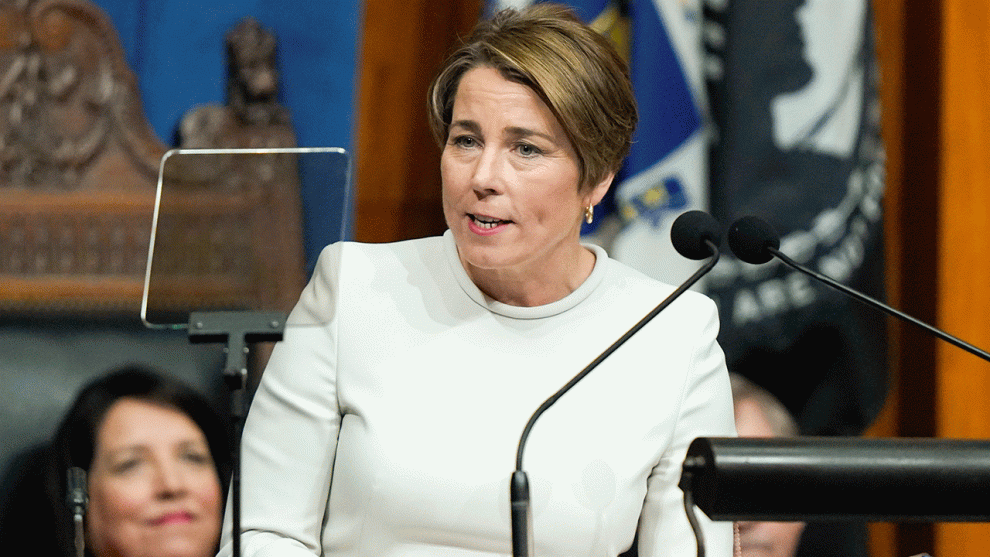Massachusetts announced plans Monday to let homeless families stay overnight in the state transportation building in Boston as officials scramble to find shelter for newly arriving families after hitting a state-imposed limit of 7,500 families in the state’s emergency homeless shelter system.
The space located in the office building is large enough to provide overnight shelter for up to 25 families with cots and limited amenities and will only be used in the evening and overnight hours, officials said.
“To ensure that families eligible for Emergency Assistance shelter have a safe and warm place to sleep at night when there is not a shelter unit immediately available, the administration is utilizing space at 10 Park Plaza as a temporary, overnight facility,” the state’s Emergency Assistance Director General Scott Rice said in a statement.
MA LEGISLATIVE SESSION CLOSES WITHOUT DEAL ON $250 MILLION EMERGENCY HOMELESS SHELTER FUNDING
As of Friday, there were 92 families on the state’s waiting list for emergency shelter.
The transportation building includes offices for the Massachusetts Department of Transportation, the Massachusetts Bay Transportation Authority, which runs greater Boston’s public transit system, and other transportation agencies.
The new shelter space will only be available to families who have been assessed at a state intake site and determined eligible for emergency assistance, officials said. The site is temporary and is expected to operate for about two weeks until an additional safety net shelter program is operational, according to the administration.
The announcement of the temporary space comes after state lawmakers wrapped up their formal session for the year last week without a deal on a $2.8 billion spending bill that included hundreds of millions of dollars to address the state’s emergency shelters that are buckling under a crush of migrant and homeless families.
Both the House and Senate bills would steer $250 million toward the shelter system, but a conference committee was unable to resolve other differences.
Democratic House Speaker Ronald Mariano said reports of families sleeping at Logan International Airport and now at the state transportation building are emblematic of the need for funding specifically reserved for overflow shelters.
“The House remains committed to ensuring that families in Massachusetts have somewhere safe and warm to sleep at night and will continue to urge the administration to identify additional overflow shelter sites going forward,” he said in a press release Monday.
Other states have faced a similar increase in demand for shelter. In New York City Mayor Eric Adams announced he’s limiting shelter stays for migrant families with children to 60 days. Chicago’s mayor plans to cap stays to 60 days as officials relocate migrants from police stations and the city’s airports to winterized camps with massive tents. In October, the city of Denver purchased 38 combined plane and bus tickets for migrants to Boston.
MASSACHUSETTS HOMELESS SHELTER CAP LEAVES MIGRANT FAMILIES STRANDED
In Massachusetts, homeless families have sought shelter in churches, hospital waiting rooms and even airport lounges after the state’s emergency shelter system hit its limit last week, forcing some homeless people to be put on a waiting list as colder weather begins to grip the state.
Local advocates trying to assist homeless families have expressed frustration as they struggle to find safe places for them to stay overnight.
The spike in demand is being driven in part by migrant families entering the state. About half of the current shelter caseload are new arrivals to Massachusetts, according to Democratic Gov. Maura Healey’s administration.
Lawmakers don’t formally convene again for votes until the new year, but leaders in both chambers say they’re still hopeful a deal can be worked out during informal sessions this year. However, legislative rules make it easier to derail bills in informal sessions.
























